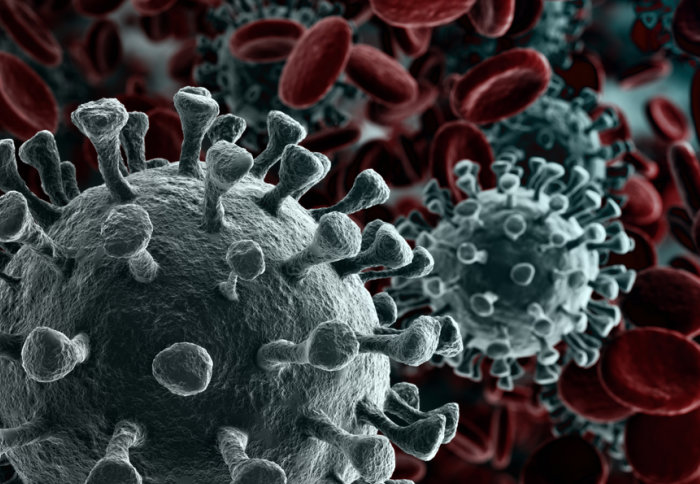Further government funding secured for Imperial coronavirus research
by Ryan O'Hare

Three Imperial research projects have received £2.4 million of national funding to help fight the coronavirus pandemic.
In the second round of funding announced by the UK Medical Research Council today, work will begin at the College to develop a potential ‘spit test’ to detect the novel coronavirus from patient’s saliva, as well as project to look at the impact of COVID-19 on pregnant women, as well as further work to develop a vaccine against the disease.
A total of 21 projects were announced in the latest batch of UKRI funding, sharing an estimated receive £14.1 million as part of the £24.6 million rapid research response funded by UK Research and Innovation (UKRI), and by the Department of Health and Social Care through the National Institute for Health Research (NIHR).
COVID-19 antibody 'spit test'
In the first of the Imperial projects, Professor Richard Tedder from the Department of Infectious Disease will lead a project to develop a simple test which could be used to diagnose people who have had COVID-19.
Using the same techniques as previously applied to Zika and Ebola, the team will use the £0.4 million in funding to develop a test suitable for non-invasive sampling and validate it in studies.
Using a swab sample of fluid from the mouth, they will be able to detect antibodies (IgG and IgM) that indicate a person has been infected with SARS-CoV-2. The tests could be available within six months.
Professor Tedder said: “Testing will be a crucial component in enabling healthcare professionals to know who has previously been infected and has now recovered from the infection. A test such as ours, which can use oral fluid, will enable easy sampling of large numbers of people. This could dramatically speed up ascertaining the level of infection in a population.
“Being able to detect antibodies in this way will be important for vaccine studies, as well helping scientists to collect blood samples from patients who have recovered from COVID-19. A highly reactive antibody swab can show which samples have the potential to be taken forward towards to help develop plasma-based treatments.”
Pregnancy outcomes
In the second project, Professor Christoph Lees and Dr Ed Mullins from the Department of Metabolism, Digestion and Reproduction, will use £0.3 million to better understand how COVID-19 affects pregnancy and child health.
Working with colleagues at Cardiff University and the International Society of Ultrasound in Obstetrics and Gynecology (ISUOG), they will aim address key research questions around the impact of the virus in early pregnancy, fetal growth, prematurity and virus transmission to the baby.

The researchers will construct a registry of women with suspected and confirmed COVID-19 from early pregnancy to after delivery of the baby. Healthcare professionals from the UK and across many international centres will contribute data via a web portal.
Dr Mullins said: “Key questions about pregnancy during the pandemic are whether the SARS-CoV-2 virus is associated with miscarriage, stillbirth and pre-term labour. We are also unclear if the virus gets transmitted from mothers to babies.
“This study will rapidly collect information on women in pregnancy and their babies affected by the virus from around the world. Through regular online updates and collaboration with other studies, we will improve our collective understanding of the infection in pregnancy and learn how we can lessen its impact.”
In addition to these two projects, the COVID-19 vaccine group, led by Professor Robin Shattock, secured £1.8 million to further develop their RNA-vaccine (read full details).
This article is based on materials provided by the UK Research and Innovation, and the National Institute for Health Research.
Article supporters
Article text (excluding photos or graphics) © Imperial College London.
Photos and graphics subject to third party copyright used with permission or © Imperial College London.
Reporter
Ryan O'Hare
Communications Division